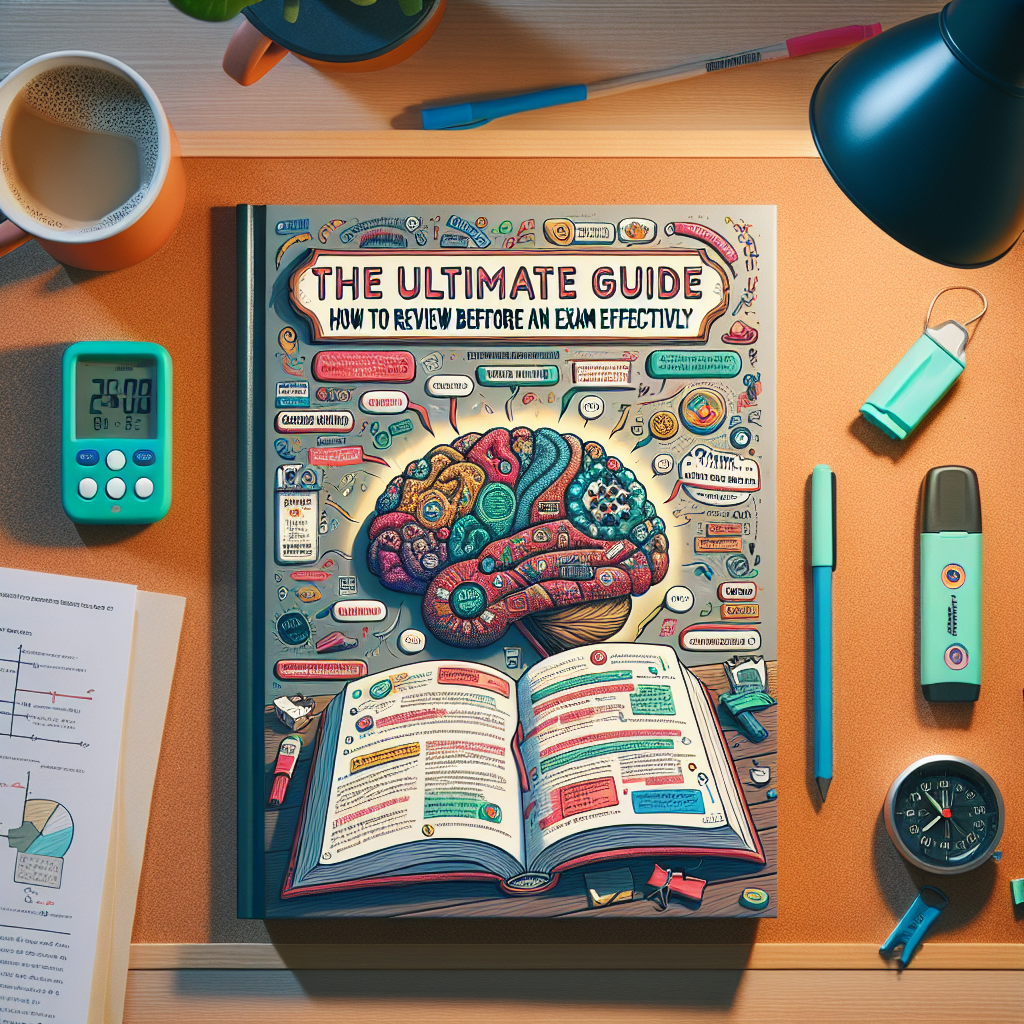How to Review Before an Exam Guide
Unlock your academic potential with this comprehensive guide on exam review strategies! Learn how to revise efficiently, manage your time, and approach your next test with confidence.
Why Review Before an Exam?
Reviewing before an exam is crucial for consolidating your understanding, identifying knowledge gaps, and boosting your confidence. Whether you’re preparing for finals, midterms, or standardized tests, dedicating time for systematic review can significantly improve your test scores and reduce anxiety. Research shows that strategic revision enhances long-term memory and aids in effective recall during high-pressure situations.
Effective Planning for Exam Success
- Set Clear Goals: Define what you want to achieve with each review session. For example, “Understand all key concepts in Chapter 5” or “Practice 10 sample essay questions.”
- Create a Timetable: Allocate specific times for each subject or topic. Use planners or digital calendars to stay organized and ensure balanced coverage.
- Prioritize Weak Areas: Focus more time on subjects or topics where you feel less confident. Regularly assess your progress and adjust your plan as necessary.
Top Revision Techniques
Incorporate a variety of evidence-based study methods for a well-rounded review:
- Active Recall: Test yourself frequently with flashcards, quizzes, or practice questions to strengthen memory retention.
- Spaced Repetition: Review material at increasing intervals to combat forgetting and reinforce learning.
- Mind Mapping: Use diagrams to visually organize information and see connections between concepts.
- Group Study: Collaborate with classmates to discuss challenging topics and gain different perspectives.
- Summarization: Write concise summaries of your notes to distill key information and clarify complex ideas.
- Past Papers: Practice with previous exam papers to familiarize yourself with question formats and time management.
Tip: Mix and match study techniques to find what works best for you. Consistency and variety are key!
Common Mistakes to Avoid
- Last-Minute Cramming: Trying to learn everything the night before rarely leads to effective learning or retention. Start early!
- Passive Reading: Simply reading notes or textbooks without engaging with the material is less effective than active review methods.
- Ignoring Practice Questions: Familiarity with the exam format is essential. Practice under timed conditions to build confidence.
- Neglecting Health: Lack of sleep, poor nutrition, and stress can all negatively impact your performance. Prioritize your well-being.
Last-Minute Exam Preparation Tips
If you’re short on time, don’t panic! Focus on high-yield concepts, make summary sheets, and review key definitions or formulas. Use mnemonic devices to remember complex information. Stay calm, avoid all-nighters, and ensure you get a good night’s sleep before the exam.
Balancing Study and Self-Care
Taking care of your body and mind is just as important as reviewing your notes. Incorporate short breaks, physical activity, and relaxation techniques into your study schedule. Don’t skip meals, stay hydrated, and practice mindfulness to manage exam stress. Remember, a healthy lifestyle supports optimal brain function and memory.
- Take regular breaks (e.g., the Pomodoro Technique: 25 minutes study, 5 minutes break)
- Engage in light exercise like stretching or walking
- Get at least 7-8 hours of sleep
- Practice deep breathing or meditation
FAQs About Reviewing for Exams
- How far in advance should I start reviewing?
- Ideally, begin your review at least 2-3 weeks before the exam. This allows time for spaced repetition and in-depth understanding.
- How can I stay motivated during exam preparation?
- Set achievable goals, reward yourself for progress, and study with friends for accountability and support.
- What should I do the night before the exam?
- Review key points, avoid cramming, pack your materials, and prioritize rest to ensure you’re alert and focused during the test.
